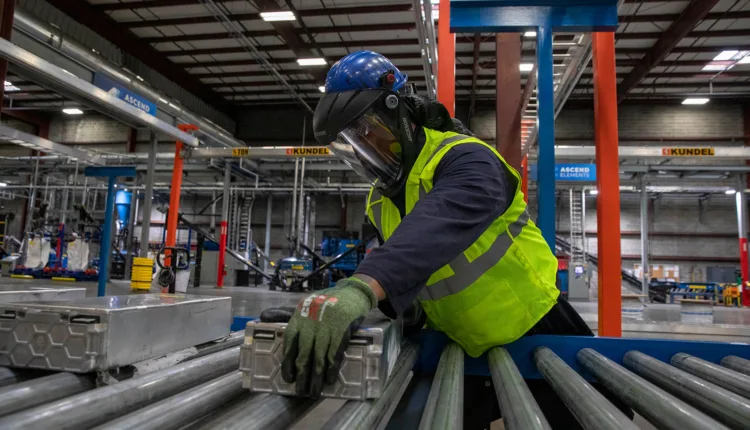
Biden’s EV and Battery Investments Could Profit Black Americans
TL/DR –
President Biden signed the Inflation Reduction Act in 2022 which provides incentives for the production of electric vehicles (EVs) and batteries in the US, with aims to grow the domestic supply chain, reduce greenhouse gas emissions, and create many new jobs. The Center for American Progress Action Fund analysis found that of the $129 billion invested in EV and battery production, about $65 billion will be located in areas where the Black population meets or exceeds the national average, providing opportunities for Black Americans. The Act has also led to gains for auto workers such as crucial wage increases and job protections, and the success of this policy could be a driving factor in a strong labor market for Black Americans in the future.
Biden’s Inflation Reduction Act Boosts Electric Vehicle Production, Benefits Black Communities
In 2022, President Joe Biden signed the Inflation Reduction Act into law, introducing new incentives to bolster U.S. production of electric vehicles (EVs) and their corresponding batteries. This move supports the American auto industry, aims to reduce greenhouse gas emissions, and aspires to create numerous high-paying union auto jobs. Growing domestic supply chains for electric vehicles, the law has prompted both American and foreign automakers to announce 111 projects to expand U.S.-based manufacturing operations.
According to an analysis by the Center for American Progress Action Fund, the Inflation Reduction Act offers significant opportunities for Black Americans. The “Biden Administration Investment Tracker” reveals that out of the $129 billion invested in EV and battery production, nearly $65 billion is allocated to areas with a significant Black population.
Black Americans stand to benefit from new, high-paying jobs and the ensuing economic activities in their communities, courtesy of Biden’s clean energy plan. This surge in economic development is a testament to the administration’s commitment to fostering a more equitable economy. Unlike previous administrations, racial equity is at the forefront of Biden’s policies, including the Executive Order on Diversity, Equity, Inclusion, and Accessibility in the Federal Workforce.
Furthermore, the administration’s investments are creating opportunities for communities traditionally neglected by federal policymaking. For instance, Latino communities may disproportionately benefit from the surge in semiconductor manufacturing supported by the CHIPS and Science Act, helping narrow the racial wealth gap.
To ensure Black communities largely benefit from these investments, it is vital that the new jobs offer good wages and protections. With support from the Biden administration, United Auto Workers (UAW) union members secured contracts with the Big Three U.S. automakers that include significant wage gains and job protections. These contracts promise a brighter economic future for Black autoworkers, who constitute more than 16 percent of autoworkers.
Transitioning to EVs does not mean lower wages and standards for auto workers, as proven by the UAW’s gains. The recent investments and labor protections signal significant progress for American workers and the auto industry.
With the lowest annual unemployment rate for Black Americans being recorded in U.S. history in 2023, it’s crucial for automakers to invest in skills training and workforce development. Given this, there is optimism that the escalating investments in EV and battery production will maintain a robust labor market for Black Americans.
—
Read More US Economic News
